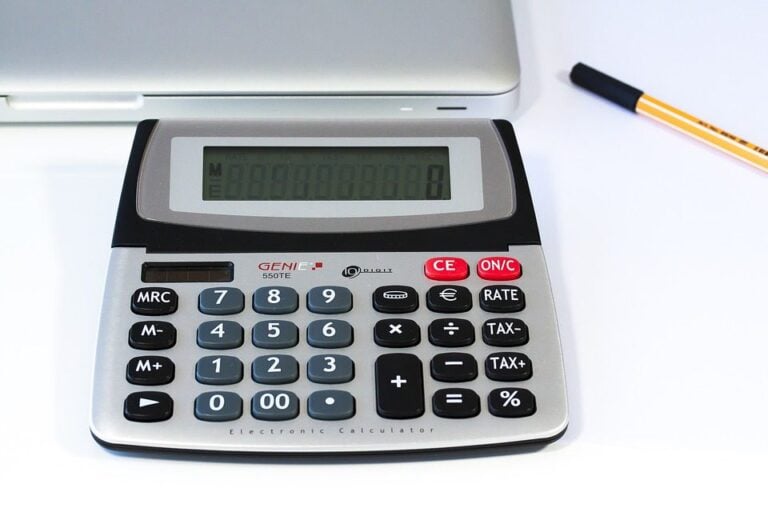What is the IRS Fresh Start Program?
By Kelly Hanley, Esq., Tax Attorney
Introduction: A Fresh Start to Resolve Your Tax Troubles
Tax season is a stressful time for many individuals and businesses. For those who have fallen behind on their tax payments, the fear of penalties, interest, and even legal action can be overwhelming. Fortunately, the Internal Revenue Service (IRS) offers a solution to help taxpayers get back on track with their tax obligations – the Fresh Start Program. In this comprehensive article, we will explore what the IRS Fresh Start Program is, the different components it includes, and how it can benefit you in resolving your tax issues. For expert assistance and a free attorney consultation, reach out to The Tax Defenders at (312) 345-5440.
Understanding the IRS Fresh Start Program: An Overview of the initiative
The IRS Fresh Start Program is a collection of initiatives aimed at helping taxpayers who are struggling to meet their tax obligations. Launched in 2011, the program was designed to provide relief to individuals and businesses facing financial hardship by making it easier for them to pay back taxes and avoid severe penalties. The Fresh Start Program consists of several components, including:
- Tax Liens
- Installment Agreements
- Offer in Compromise
- Penalty Relief
In the following sections, we will delve into each of these components in greater detail to help you understand how they can assist you in resolving your tax problems.
Tax Liens: Protecting Your Assets and Credit
A federal tax lien is the government’s claim on your property due to unpaid tax debt. Under the Fresh Start Program, the IRS has made changes to the way it files and withdraws tax liens to make it easier for taxpayers to pay their debts and protect their assets and credit. The key changes include:
- Increased Threshold for Filing Tax Liens: The IRS has raised the threshold for filing a tax lien from $5,000 to $10,000, meaning that tax liens will not be filed for tax debts less than $10,000.
- Streamlined Lien Withdrawals: Taxpayers who enter into a direct debit installment agreement (DDIA) with the IRS can have their tax lien withdrawn upon request. This can help protect their credit rating and make it easier to sell or refinance property.
Installment Agreements: Manageable Monthly Payments
If you are unable to pay your tax debt in full, the Fresh Start Program offers installment agreements that allow you to make smaller, manageable monthly payments over a specified period. There are two types of installment agreements available under the program:
- Streamlined Installment Agreements: For individual taxpayers who owe $50,000 or less in combined taxes, penalties, and interest, the IRS offers a streamlined installment agreement. Under this agreement, you have up to 72 months to pay off your tax debt without having to provide a full financial statement.
- Direct Debit Installment Agreements (DDIA): The DDIA allows you to make your installment payments through direct debit from your bank account, providing convenience and ensuring timely payments. As mentioned earlier, entering into a DDIA can also help you get your tax lien withdrawn.
Offer in Compromise: Settlement of Your Tax Debt for Less
An Offer in Compromise (OIC) is an agreement between you and the IRS that allows you to settle your tax debt for less than the full amount owed. The Fresh Start Program has made the OIC process more accessible and flexible, making it easier for taxpayers to negotiate a settlement that suits their financial situation. To qualify for an OIC, you must meet specific eligibility criteria, such as:
- Filing all required tax returns
- Making required estimated tax payments
- Having no ongoing bankruptcy proceedings
The IRS will consider your unique financial circumstances, including your income, expenses, assets, and ability to pay, when evaluating your OIC application. If your offer is accepted, you can choose to pay the agreed-upon amount in a lump sum or through installment payments.
Penalty Relief: Reducing Your Tax Burden for Hardship
The IRS may impose penalties on taxpayers who fail to file tax returns or pay taxes on time. The Fresh Start Program offers penalty relief options to help eligible taxpayers reduce their tax burden. Two primary penalty relief options available under the program are:
- First Time Penalty Abatement (FTA): The FTA is designed for taxpayers who have a clean compliance history with the IRS. If you have not been assessed penalties for the past three years, have filed all required tax returns, and have paid or arranged to pay any outstanding tax debt, you may qualify for an FTA to remove penalties associated with a single tax year.
- Reasonable Cause Relief: If you can demonstrate that your failure to file or pay taxes on time was due to a reasonable cause, such as a natural disaster, death in the family, or serious illness, the IRS may waive penalties associated with your tax debt.
Take the First Step Towards a Fresh Start Today with Tax Debt Relief
The IRS Fresh Start Program offers a lifeline to taxpayers struggling to meet their tax obligations. With the various components of the program, you can protect your assets, set up manageable payment plans, negotiate a lower settlement, and even obtain penalty relief. However, navigating the complex world of tax laws and regulations can be challenging.
Don’t face your tax problems alone. Reach out to The Tax Defenders for expert guidance and a free attorney consultation. Call (312) 345-5440 or visit https://www.thetaxdefenders.com/ to get started on your path to a fresh start with your tax obligations.
See related questions and information:
How much will the IRS usually settle for?
The amount the IRS will settle for depends on each taxpayer’s unique financial situation. Through the Offer in Compromise (OIC) program, the IRS evaluates an individual’s income, expenses, assets, and ability to pay when determining the settlement amount. There is no fixed percentage or specific amount that the IRS will typically settle for, as each case is assessed on its own merits.
The IRS will generally only accept an OIC if they believe the offered amount is the most they can reasonably expect to collect from the taxpayer within a reasonable timeframe. To increase the likelihood of a successful OIC, it is advisable to consult with a tax professional who can guide you through the process and help you present a strong case.
Who qualifies for the fresh start program with the IRS?
The IRS Fresh Start Program is designed to assist taxpayers facing financial difficulties in meeting their tax obligations. While specific qualifications may vary depending on the component of the program you are interested in, there are some general qualifications that apply:
- Tax Debt: You must owe federal taxes and be struggling to pay them. The Fresh Start Program is intended for those who cannot pay their tax debts in full, either due to financial hardship or other extenuating circumstances.
- Tax Compliance: You must be current on filing all required tax returns. To qualify for any component of the Fresh Start Program, you must have filed all necessary tax returns for previous years.
- No Ongoing Bankruptcy: If you are currently involved in bankruptcy proceedings, you will not be eligible for the Fresh Start Program.
For specific components of the Fresh Start Program, such as the Offer in Compromise (OIC) and penalty relief options, there are additional qualifications and eligibility criteria. Keep in mind that each taxpayer’s situation is unique, and the IRS will evaluate your eligibility based on your individual financial circumstances. Consulting with a tax professional can help you determine if you qualify for the Fresh Start Program and guide you through the process.
How does the IRS fresh start program work?
The IRS Fresh Start Program is a collection of initiatives aimed at helping taxpayers who are struggling to meet their tax obligations. The program works by providing relief to individuals and businesses facing financial hardship, making it easier for them to pay back taxes and avoid severe penalties. Here’s a summary of how the various components of the Fresh Start Program work:
Tax Liens: The program has increased the threshold for filing a tax lien from $5,000 to $10,000, which means that the IRS will not file a tax lien for tax debts less than $10,000. Additionally, it has streamlined the process for lien withdrawals, allowing taxpayers who enter into a direct debit installment agreement (DDIA) to request the withdrawal of their tax lien.
Installment Agreements: The Fresh Start Program offers installment agreements for taxpayers who cannot pay their tax debt in full. These agreements allow taxpayers to make smaller, manageable monthly payments over a specified period. The program offers two types of installment agreements: Streamlined Installment Agreements for individuals owing $50,000 or less, and Direct Debit Installment Agreements (DDIA), which automatically withdraw monthly payments from the taxpayer’s bank account.
Offer in Compromise (OIC): This component allows eligible taxpayers to settle their tax debt for less than the full amount owed. The IRS evaluates the taxpayer’s financial situation, including income, expenses, assets, and ability to pay, when considering an OIC application. If the offer is accepted, the taxpayer can choose to pay the agreed-upon amount in a lump sum or through installment payments.
Penalty Relief: The Fresh Start Program provides penalty relief options for eligible taxpayers, such as First Time Penalty Abatement (FTA) and Reasonable Cause Relief. The FTA is available for taxpayers with a clean compliance history, while Reasonable Cause Relief can be granted if the taxpayer can demonstrate that their failure to file or pay taxes on time was due to a reasonable cause.
By offering these various components, the IRS Fresh Start Program helps taxpayers resolve their tax issues and get back on track with their tax obligations. However, navigating the program’s intricacies can be challenging, and it’s often beneficial to consult with a tax professional for guidance and assistance.
What is the 2023 IRS fresh start program?
The Offer in Compromise (OIC) program, as detailed on the IRS website, is an agreement between a taxpayer and the IRS that allows the taxpayer to settle their tax debt for less than the full amount owed. The program is designed for taxpayers who cannot pay their full tax liability or for whom doing so would create a financial hardship. The IRS evaluates each OIC application by considering the taxpayer’s unique financial situation, including their ability to pay, income, expenses, and asset equity.
To apply for an OIC, taxpayers must be current on all filing and payment requirements and not be in an open bankruptcy proceeding. The IRS provides a pre-qualifier tool to help taxpayers determine their eligibility. The application process involves submitting Form 656, Offer in Compromise, and Form 433-A (OIC) or Form 433-B (OIC) to provide detailed financial information. There is also a non-refundable application fee of $205 and an initial payment required with the application.
The IRS typically takes 6 to 24 months to process an OIC application. During this time, the taxpayer must continue to file and pay their taxes. If the IRS accepts the OIC, the taxpayer can choose to pay the agreed-upon amount in a lump sum or through installment payments. If the offer is rejected, the taxpayer can appeal the decision within 30 days.
Is the fresh start program legit?
Yes, the Fresh Start Program is a legitimate initiative introduced by the Internal Revenue Service (IRS) in 2011. The program aims to help taxpayers who are struggling to meet their tax obligations due to financial hardship or other extenuating circumstances. The Fresh Start Program offers various components, such as tax lien adjustments, installment agreements, Offer in Compromise (OIC), and penalty abatement options, to assist taxpayers in resolving their tax issues and getting back on track with their tax obligations.
While the Fresh Start Program itself is legitimate, there might be fraudulent schemes or scams claiming to be associated with the program. Always be cautious when dealing with third-party services and verify their legitimacy before sharing personal or financial information. It is advisable to consult a reputable tax professional regarding the Fresh Start Program.







